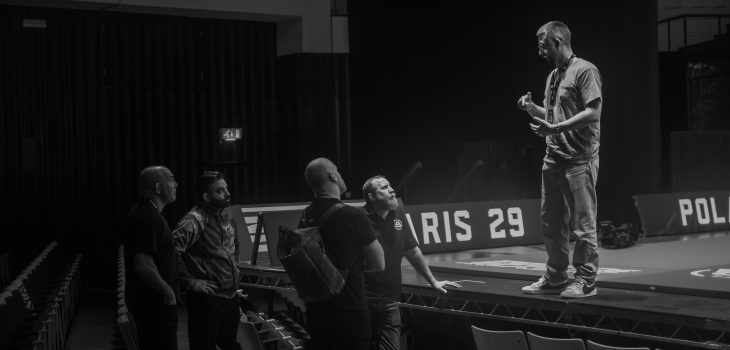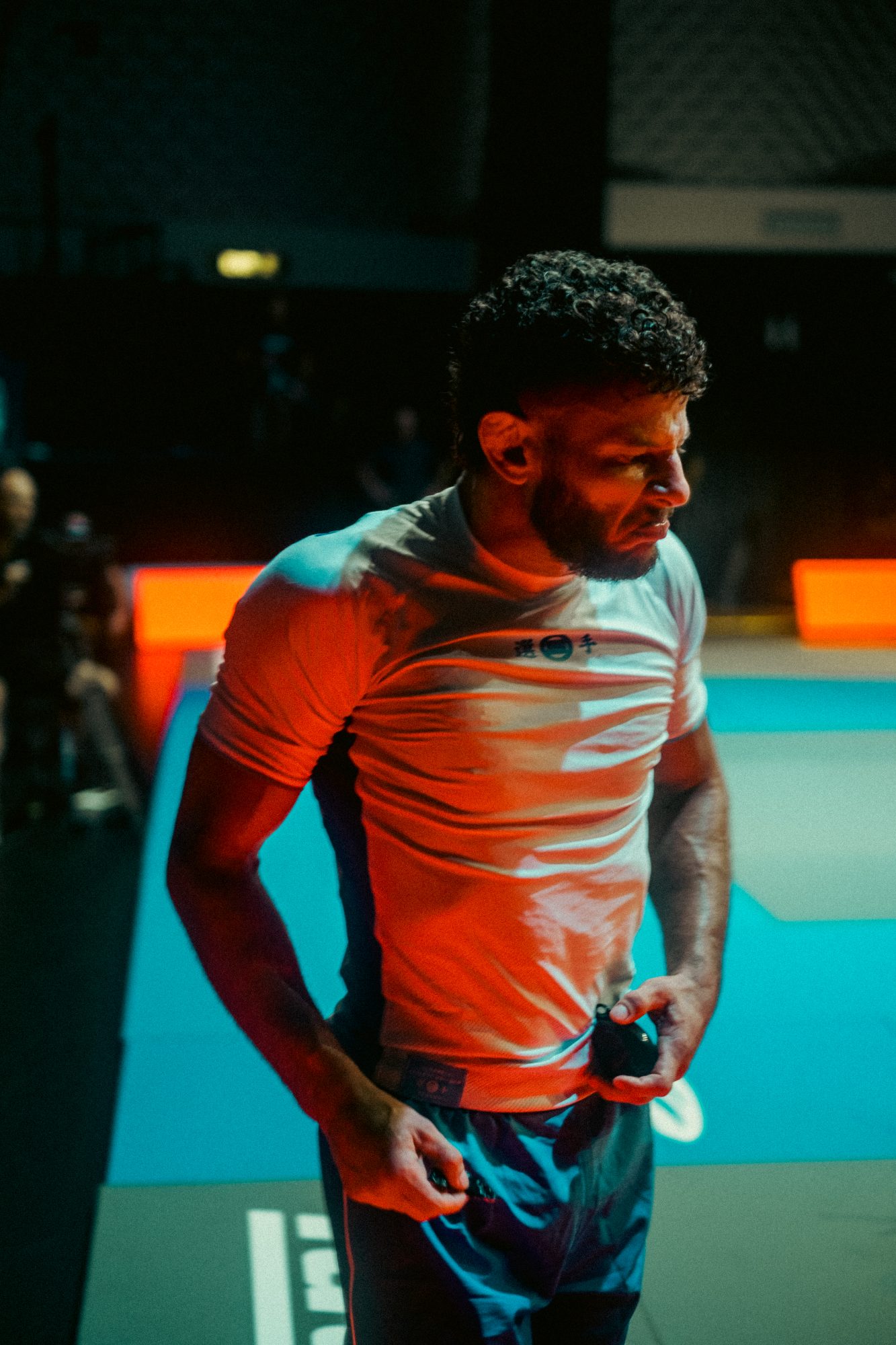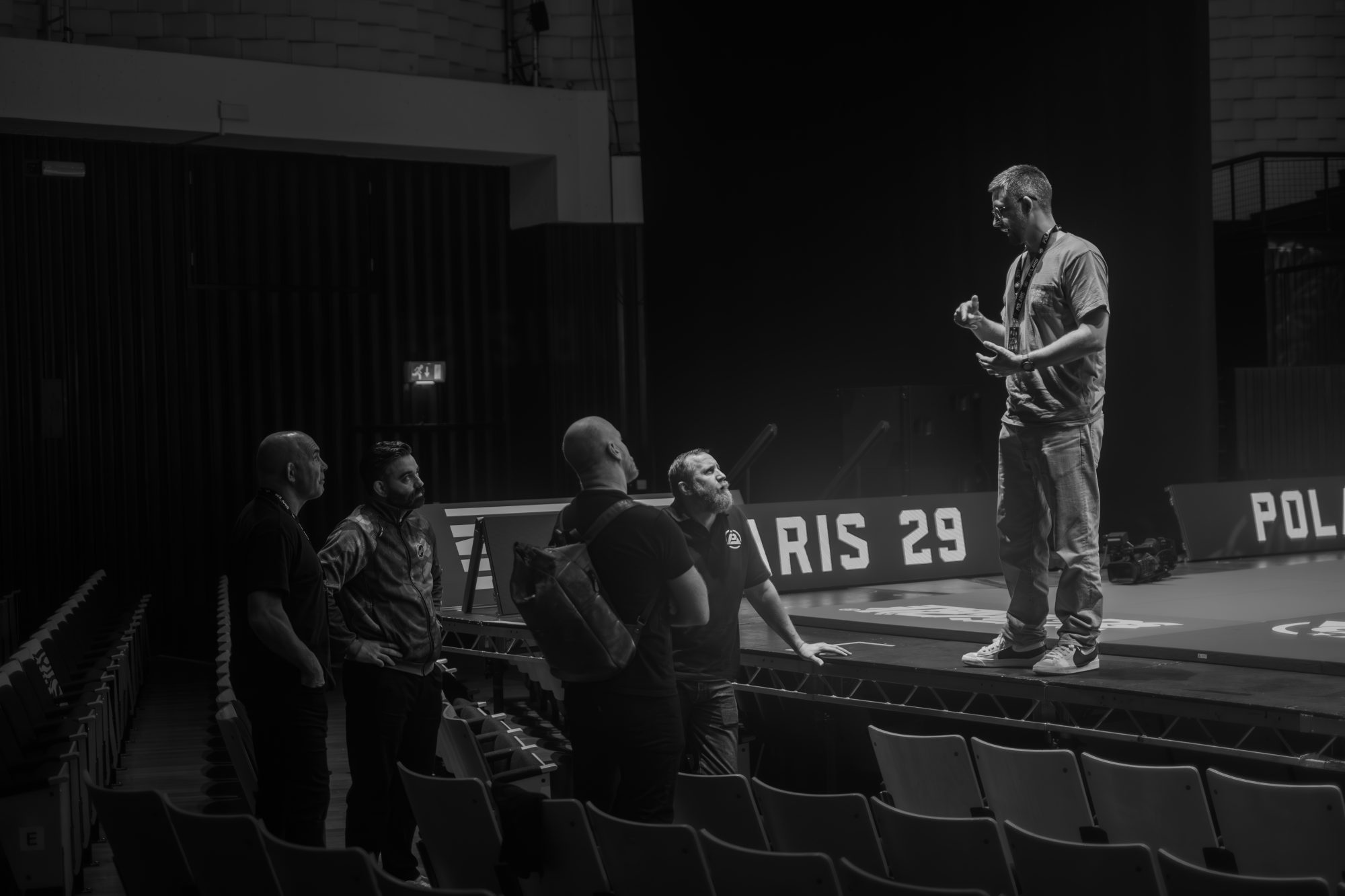 Scramblog
Scramblog Advice for Aspiring Pro Athletes
I wrote an article on my personal blog a while ago from the perspective of someone who helps to run a fight show (Polaris) alongside Scramble. Here it is for the benefit of the many of our customers, friends and associates who are interested in pursuing a full-time career in jiujitsu – how to approach and deal with professional grappling shows.

In no particular order, here are some points.
You must have a set of high resolution photographs of yourself, ideally in gi and no gi gear depending on what kind of matches you want. Either ask a photographer friend to take a picture of you using some decent photography equipment, or get the photos done yourself with a mobile phone, in a well-lit room, on a neutral background. I can tell you that this is one of the biggest pet peeves when arranging matches on a pro show – waiting for pictures from fighters. Usually, after waiting for weeks, we will get sent a picture so tiny it looks like it was taken on a Motorola flip phone, and it makes the athlete and the show look bad when shared. Have well lit, high quality photographs of yourself on hand and always send by email, never by messenger or WhatsApp as any of those chat apps compress and degrade the quality. You will instantly be in a shows good books if you have decent pictures to hand. They are very easy to take with modern phones. Wear your gear, stand against a plain wall in a well-lit room, take the photos, and keep them handy for when a promotion needs them.
Shows will often refer to an existing pool of fighters they are familiar with when looking to make matches. This is because being known to the show already takes a few steps out of the equation – the show doesn’t need to introduce itself, introduce the format, the pay structure, the rules, and so on. We are usually extremely busy and matchmaking is very fluid and fast moving, which means it’s often easier to ask people we know already. For this reason, getting on the show in the first place is the biggest step, and you achieve that by being easy to work with. Be flexible, be communicative, have your photos ready to go. Don’t go looking for a world champion for your first match, or be too picky about weights and ranks. Of course, never accept a match that you don’t feel comfortable with, but be willing to work with the organisation, as the first step on the ladder is often the most important. The second pool of fighters we look at is those who have already been on other shows. This is simply because you know that fighter has some experience in a professional environment. So again, I can’t emphasise enough that the first step on the ladder is the most important, so make yourself available and easy to work with.
Regarding money. If a show has invited you on, you should never accept zero fee. If you are being invited, then you should be paid, even if it is a token amount. By the same token, if you are not Craig Jones, then don’t bother trying to negotiate a high fee, especially early in your career. Dozens of jiu jitsu shows have come and gone over the years, and many of them go bang immediately due to overspending. A show should pay you what you are reasonably worth – you will soon find out if what you are asking for is reasonable by the amount of professional matches that end up materialising for you over the course of a year or two. If it’s in the single digits, you could be pricing yourself out of the market, although of course, there could be other reasons for this. One of the main benefits of appearing on a show like Polaris is the exposure that you receive from it. Being paid in exposure is almost a meme at this point, but that’s usually because the exposure offered is worthless. However, Polaris is one of the best shows in the world, broadcast on UFC Fight Pass, and consistently puts out some of the best media (photography and video) in the fight game. For this reason, appearing on Polaris for a ‘small’ fee, but then having a standout performance that gets hundreds of thousands of views across social media, can be a career changer. This has happened to our athletes numerous times. Be wary of shows with a small following that offer exposure, but can’t back it up with solid numbers. A show should also offer you travel expenses, within an agreed upon budget, and if you are travelling beyond an hour or two’s drive away, then a hotel can be asked for, although it won’t be guaranteed. Again, it’s best to be flexible, especially if it is your first appearance on the show. Remember, you fly yourself out to some random city in Europe, at your own expense, to pay to compete, only to potentially win a medal – so let’s be realistic when negotiating with shows. Be easy to work with and perform well – the next time, you will be in a much better position to negotiate. Occasionally, an athlete from overseas may offer to fly themselves in just for the chance to compete on the show – as they may not have been considered otherwise. In my opinion, do this if you are very confident in your skills as a performer. It is not worth flying yourself to another country, at great expense, only to have a sub-par or forgettable performance. Only do this if you are Garry Tonon / Genki Sudo personified, and will breakdance on your opponent while waving at the crowd.
Sell tickets. For some reason, most jiu jitsu people are terrible at selling tickets. MMA fighters and boxers seem happy to graft and will gather up friends and family by the boatload to come and watch them punch each other in the face, but jiu jitsu people are often very lazy in this regard. For many shows, and Polaris is no exception, ticket sales are a very important revenue stream. If you are on the preliminary card, you are expected to sell tickets, and to bring family, friends and team-mates to the show – not only from a financial perspective, but also to build atmosphere at the venue. If you fail to sell any tickets, you will rapidly fall to the bottom of the list of fighters that shows want to work with. Plus, most shows will (should) offer you ticket commission, so while you may sign a contract for a small amount, often what gets paid is much higher if you work to sell tickets. We have had fighters 10x what their contract specified thanks to ticket sales.
Promote your match. If there is a poster, share it, and share it often. If the show does not provide you with media, share whatever announcements the show makes, and lastly just share your own training pictures and videos, and tag the show. Share it as much as possible in the lead up to the show. Ask the promotion what time the show is on and where it can be streamed, where tickets can be bought, every useful bit of information, and add that to your posts.
Do. Not. Pull. Out. Unless something truly terrible has happened, or you have a medical issue, do not pull out. We have had a lot of fighters pull out (or attempt to) because they just changed their mind, or for some other fairly minor reason. All you are doing is letting the show know that it is low on your list of priorities, and for that reason, don’t expect to get a call back any time soon. For a really professional show, a pull out will have a number of knock-on effects. For Polaris, it means re-editing posters, re-booking hotels and travel, updating / removing any references to that fighter and relaying that to relevant parties such as UFC Fight Pass, updating Tale of the Tape and other broadcast graphics, updating walkout plans and warmup room allocations, and loads more. Basically, it is pain the arse and we often lose money in the process.
If you get to the contract stage, make it a priority to read and sign the contract within 24 hours of receiving it. If you have questions about it, send them over as soon as possible. Do not open the contract 400 times and not sign it over the next three weeks. A professional show will not pull the trigger on travel bookings, announcements and posters or other key aspects of getting you on the show, without a signed contract in place. The longer you take to sign, the less time you will have to effectively market yourself and your match. Also, read the contract from start to finish thoroughly – every point. If anything is unclear, just ask. Check bout weight, bout fee, rule set, uniform, travel details, hotel details, whether or not you have to sacrifice your first born child, etc., check everything in great detail.
Remember that these are professional shows, they are not IBJJF events. This means entertainment is key. Entertainment is the most important aspect of your performance. It is not how good your jiu jitsu is or whether you win. If you want to be the best no gi grappler on earth, ADCC is the one. If you want to be the best gi guy on earth, IBJJF is the one. If a professional show has invited you to be on it, and tickets are being sold and a PPV or live broadcast is being promoted, then you are expected to perform. In some cases, your jiujitsu can be so good and so dynamic, that is your performance. In others, it could be your walkout, your pre-fight antics, your post-fight speech, your interactions with the fans – they have all paid to come and watch jiujitsu in person, they are there to be entertained. They will respond to you – even something as simple as raising your arms and hyping up the audience can win them over and begin to build your reputation as an exciting athlete. Have a post-fight speech prepared – a call out, something amusing or inspirational or funny. Kazushi Sakuraba always comes to mind. He lost a LOT of matches, but is widely regarded and loved as one of the most entertaining fighters in history. He understood that as a paid fighter, it was his job to make it fun. Be entertaining. Think deeply about your walkout song. Time and time again, a walkout song falls flat on the audience. Pick something memorable, something that sparks recognition in the crowd. The best walkouts we’ve ever had have all been songs that are already in the public consciousness. Eoghan O’Flanagon coming out to Abba, is one example. The crowd went crazy. Your walkout song does not need to be intimidating – it needs to engage the crowd. Think of Wild Boys and CroCop. Everything leant slightly camp in that walkout – the eighties tune, the long high collared jackets. But it worked, and it was memorable.
If you want to be a professional athlete, then be a professional. Turn up on time. Train intelligently in the week leading up to the fight. Avoid injury. Don’t accept small matches in the leadup, don’t enter local competitions. Respond to messages in a timely manner. Be where you are supposed to be. Don’t be late. If the show has booked a hotel for you, turn up and check in – they lose money if you don’t. If you are due to be weighed in at 9am, be ready at 8:55. If there is a rules meeting at 5pm, be there at 4:55 with questions in hand. If you want to get treated like a professional, then first, act like one. Gain a reputation as a professional and be easy to work with, and watch the doors open up for you.
Cultivate your social media following and win as many amateur / pay to play events as you can at a local level. When we are first introduced to an athlete, often the first metric we are drawn to is their social following. While social presence might not be an indicator of the level of jiujitsu or whether a person will perform, when you have nothing to go on, its often the first thing we look at. If we have to choose between an athlete who has 400 followers and one who has 4000 followers, all things being equal, it makes sense to choose the person with the bigger following, as they will bring more eyes to the show. For this reason, it is worth developing your social following as much as possible. Don’t be a shy and retiring wallflower if you want to be a professional athlete – unless you are god-tier in skill, where your jiujitsu speaks for itself. But even legends in the making will benefit from having a good following on social media. The next metric when looking for new fighters is finding out what they’ve won before. While become a professional jiujitsu person is becoming more viable by the day, you still need to put the work in on the amateur level. These achievements become rock solid parts of your CV and the things that you can use to shore up holes in your professional resume. Professional shows will want to know what you have won in the past, so have that information to hand.
These are all small points and might seem insignificant or obvious, but put them all together and these small things add up. Success is no coincidence, it’s taking care of all the little things consistently. Good luck!
